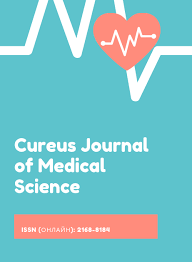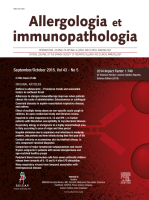Antitussive
How to submit an article:
- Registered users can submit any published journal article that has a unique DOI (Digital Object Identifier) name or link to Research Hub.
- For example, you can paste the full DOI link:
https://doi.org/10.1109/5.771073or just the DOI name:10.1109/5.771073into the field above and click submit. - The person who is first to submit a valid article to Research Hub will forever be credited for it, and every article submission earns you +6 Research Points.
Published research studies are articles that present the findings of original research that has undergone a peer-review process and has been made publicly available in scholarly journals, books or other media.

Comparing the Effectiveness of Honey Consumption With Anti-Cough Medication in Pediatric Patients: A Systematic Review
2022 Sep 20 Cureus Journal of Medical Science Mashat GD, Hazique M, Khan KI, Ramesh P, Kanagalingam S, Ul Haq Z, et al.
Systematic Review Meta-Analysis Honey Children's Health CoughHoney is effective in treating coughs in children above 12 months.

Potentials of Antitussive Traditional Persian Functional Foods for COVID-19 Therapy†
2021 Jul 16 Frontiers in Pharmacology Mosleh G, Badr P, Zaeri M, Mohagheghzadeh A
The study concludes that TPM has identified twelve FFs with antiviral, anti-inflammatory, antioxidant, and mucoregulatory effects, which could be cost-effective, easily accessible, and safe options for the treatment and prevention of COVID-19, as well as managing persistent respiratory discomforts after recovery.
Review Article Respiratory Conditions COVID-19
Antitussive, expectorant, and anti-inflammatory effects of Adenophorae Radix powder in ICR mice
2019 Jul Journal of Ethnopharmacology Hu JR, Jung CJ, Ku SM, Jung DH, Ku SK, Choi JS
The results obtained in this study suggest that AR powder exerts dose-dependent, favorable antitussive, expectorant, and anti-inflammatory activities achieved through modulation of the activity of mast cells and respiratory mucous production. Therefore, AR powder may serve as a therapeutic agent in various respiratory disorders, especially those that occur as a result of environmental toxicants.
Animal Study Anti-Inflammatory Antitussive
Effect of multiple honey doses on non-specific acute cough in children. An open randomised study and literature review
2015 Sep Allergologia et Immunopathologia Miceli Sopo S, Greco M, Monaco S, Varrasi G, Di Lorenzo G, Simeone G
Review Article Cough Honey Non-specific Acute Cough Children's HealthMilk and honey mixture seems to be at least as effective as dextromethorphan and levodropropizine, the most prescribed over-the-counter antitussives in Italy, in non-specific acute cough in children.

A Review of the Phytochemistry and Pharmacological Activities of Raphani Semen
2013 Jul 8 Evidence-Based Complementary and Alternative Medicine Tung-Ting Sham, Ailsa Chui-Ying Yuen, Yam-Fung NgChi-On ChanDaniel Kam-Wah Mok, and Shun-Wan Chan
Systematic ReviewRadish seed has been demonstrated to have beneficial effects on hypertension, obesity, diabetes mellitus, constipation, and cough.
Research insights are moderated by the Research Hub team and offer an at-a-glance overview of interesting research findings.

2022 Cureus Journal of Medical Science
Honey is effective in treating coughs in children above 12 months.
Systematic Review Children's Health Cough Honey
Comparing the Effectiveness of Honey Consumption With Anti-Cough Medication in Pediatric Patients: A Systematic Review
Mashat GD, Hazique M, Khan KI, Ramesh P, Kanagalingam S, Ul Haq Z, et al.

2015 Allergologia et Immunopathologia
Milk and honey mixture seems to be at least as effective as dextromethorphan and levodropropizine, the most prescribed over-the-counter antitussives in Italy, in non-specific acute cough in children.
Review Article Children's Health Cough Honey Non-specific Acute Cough
Effect of multiple honey doses on non-specific acute cough in children. An open randomised study and literature review
Miceli Sopo S, Greco M, Monaco S, Varrasi G, Di Lorenzo G, Simeone G

2013 Evidence-Based Complementary and Alternative Medicine
Radish seed has been demonstrated to have beneficial effects on hypertension, obesity, diabetes mellitus, constipation, and cough.
Systematic Review
A Review of the Phytochemistry and Pharmacological Activities of Raphani Semen
Tung-Ting Sham, Ailsa Chui-Ying Yuen, Yam-Fung NgChi-On ChanDaniel Kam-Wah Mok, and Shun-Wan Chan
Review Articles
Review articles summarise and critically evaluate the current state of research on a specific topic or field by synthesising multiple primary research studies.

Comparing the Effectiveness of Honey Consumption With Anti-Cough Medication in Pediatric Patients: A Systematic Review
2022 Sep 20 Cureus Journal of Medical Science Mashat GD, Hazique M, Khan KI, Ramesh P, Kanagalingam S, Ul Haq Z, et al.
Systematic Review Meta-Analysis Honey Children's Health CoughHoney is effective in treating coughs in children above 12 months.

Potentials of Antitussive Traditional Persian Functional Foods for COVID-19 Therapy†
2021 Jul 16 Frontiers in Pharmacology Mosleh G, Badr P, Zaeri M, Mohagheghzadeh A
The study concludes that TPM has identified twelve FFs with antiviral, anti-inflammatory, antioxidant, and mucoregulatory effects, which could be cost-effective, easily accessible, and safe options for the treatment and prevention of COVID-19, as well as managing persistent respiratory discomforts after recovery.
Review Article Respiratory Conditions COVID-19
Effect of multiple honey doses on non-specific acute cough in children. An open randomised study and literature review
2015 Sep Allergologia et Immunopathologia Miceli Sopo S, Greco M, Monaco S, Varrasi G, Di Lorenzo G, Simeone G
Review Article Cough Honey Non-specific Acute Cough Children's HealthMilk and honey mixture seems to be at least as effective as dextromethorphan and levodropropizine, the most prescribed over-the-counter antitussives in Italy, in non-specific acute cough in children.

A Review of the Phytochemistry and Pharmacological Activities of Raphani Semen
2013 Jul 8 Evidence-Based Complementary and Alternative Medicine Tung-Ting Sham, Ailsa Chui-Ying Yuen, Yam-Fung NgChi-On ChanDaniel Kam-Wah Mok, and Shun-Wan Chan
Systematic ReviewRadish seed has been demonstrated to have beneficial effects on hypertension, obesity, diabetes mellitus, constipation, and cough.
Mentioned TCM — 18 Aug 2021
Clinical Trials
Clinical trials are research studies that involve people and are conducted to evaluate the safety and efficacy of new treatments or interventions, such as drugs, medical devices, or behavioural therapies.
Study Protocols
Published study protocols are detailed plans that outline the objectives, methodology, statistical analyses, and organisation of a research study that have been made publicly available for others to review and use as a reference.
Presentation Slides

Systematic Review
Honey is effective in treating coughs in children above 12 months.
Mashat GD, Hazique M, Khan KI, Ramesh P, Kanagalingam S, Ul Haq Z, Victory Srinivasan N, Khan AI, Khan S

Review Article
Milk and honey mixture seems to be at least as effective as dextromethorphan and levodropropizine, the most prescribed over-the-counter antitussives in Italy, in non-specific acute cough in children.
Miceli Sopo S, Greco M, Monaco S, Varrasi G, Di Lorenzo G, Simeone G

Systematic Review
Radish seed has been demonstrated to have beneficial effects on hypertension, obesity, diabetes mellitus, constipation, and cough.
Tung-Ting Sham, Ailsa Chui-Ying Yuen, Yam-Fung NgChi-On ChanDaniel Kam-Wah Mok, and Shun-Wan Chan
Executive Summary
Write an executive summary in the form of a blog article on the topic of "Research into Chinese medicine treatment for Antitussive" summarising the research below and using language that can be easily understood by patients and avoiding medical jargon using a professional and caring tone of voice.
Write an executive summary in the form of a blog article on the topic of "Researched Chinese medicine treatments for Antitussive" summarising the research below in an objective and easy to understand way, and using language that can be easily understood by patients. Group the article into Chinese medicine treatments first, followed by nutrition and other treatments. Avoid using medical jargon and use a professional and caring tone of voice.
Write me a concise but easy to understand executive summary on the topic of "Chinese medicine treatments for Antitussive" based on the following research that I will give you. Your summary should be 2 paragraphs long in Australian English spelling and include references to the studies.
A Systematic Review published in 2022 in the journal Cureus Journal of Medical Science found that Honey is effective in treating coughs in children above 12 months. The researchers undertook a systematic review of literature across five databases, using a Medical Subject Heading strategy, keywords, and defined inclusion and exclusion criteria to identify relevant studies. This review incorporated a range of study types, including systematic reviews, meta-analyses, randomized controlled trials, observational studies and cross-sectional studies. Those articles without a clear methodology section were excluded. The quality of the remaining literature was appraised using a specific checklist. Following the review, it was found that honey is effective in treating coughs in children older than 12 months. Cold and cough medications were also found to be safe, if given at therapeutic doses. However, a note of caution was highlighted for the use of these medications in children under two years, as fatalities have been recorded in some cases; although further studies are recommended to establish a clear safety profile.
A Review Article published in 2015 in the journal Allergologia et Immunopathologia found that Milk and honey mixture seems to be at least as effective as dextromethorphan and levodropropizine, the most prescribed over-the-counter antitussives in Italy, in non-specific acute cough in children. Honey is recommended for non-specific acute paediatric cough by the Australian guidelines. Current available randomised clinical trials evaluated the effects of a single evening dose of honey, but multiple doses outcomes have never been studied. 134 children suffering from non-specific acute cough were randomised to receive for three subsequent evenings a mixture of milk (90 ml) and wildflower honey (10 ml) or a dose of DM or LDP adjusted for the specific age. The effectiveness was evaluated by a cough questionnaire answered by parents. Primary end-point efficacy was therapeutic success. The latter was defined as a decrease in cough questionnaire score greater than 50% after treatment compared with baseline values. Three children were excluded from the study, as their parents did not complete the questionnaire. Therapeutic success was achieved by 80% in the honey and milk group and 87% in OTC medication group (p = 0.25).
A Systematic Review published in 2013 in the journal Evidence-Based Complementary and Alternative Medicine found that Radish seed has been demonstrated to have beneficial effects on hypertension, obesity, diabetes mellitus, constipation, and cough. The dried ripe seed of Raphanus sativus L., commonly known as radish seed (or Raphani Semen), is used as traditional Chinese medicine (TCM) to treat constipation, chronic tracheitis, and hypertension. The major active compounds in Raphani Semen are alkaloids, glucosinolates, brassinosteroids, and flavonoids. Fatty acids are its main nutritional contents. Raphani Semen has been demonstrated to have beneficial effects on hypertension, obesity, diabetes mellitus, constipation, and cough. So far, there is no report about the adverse/toxic effects of this herb on humans. However, Raphani Semen processed by roasting was reported to exhibit some adverse effects on mice. Additionally, erucic acid, the main fatty acid in Raphani Semen, was shown to enhance the toxicity of doxorubicin. Thus, Raphani Semen has a potential risk of causing toxicity and drug interaction. In summary, Raphani Semen is a valuable TCM herb with multiple pharmacological effects. More studies on Raphani Semen could help better understand its pharmacological mechanisms so as to provide clear scientific evidence to explain its traditional uses, to identify its therapeutic potential on other diseases, and to understand its possible harmful effects.
Moderation Tools
Topic
Sign In
Users not signed in are limited to viewing the 5 most recent items of content.
Mentioned TCM — 18 Aug 2021